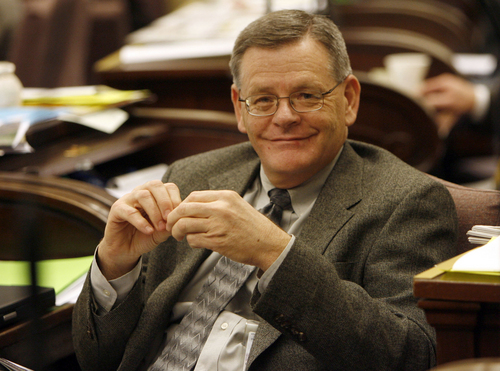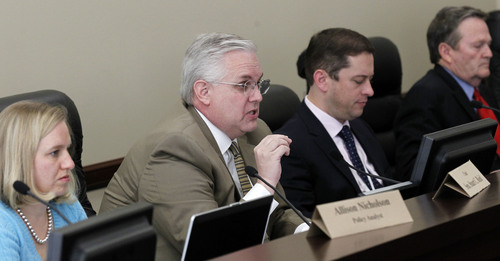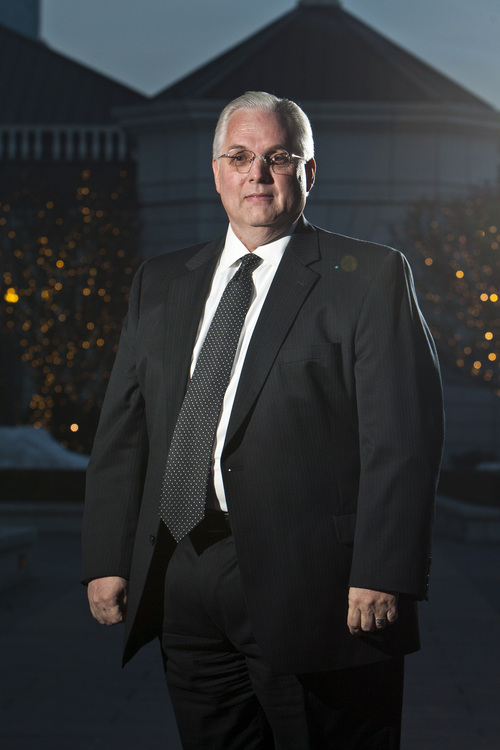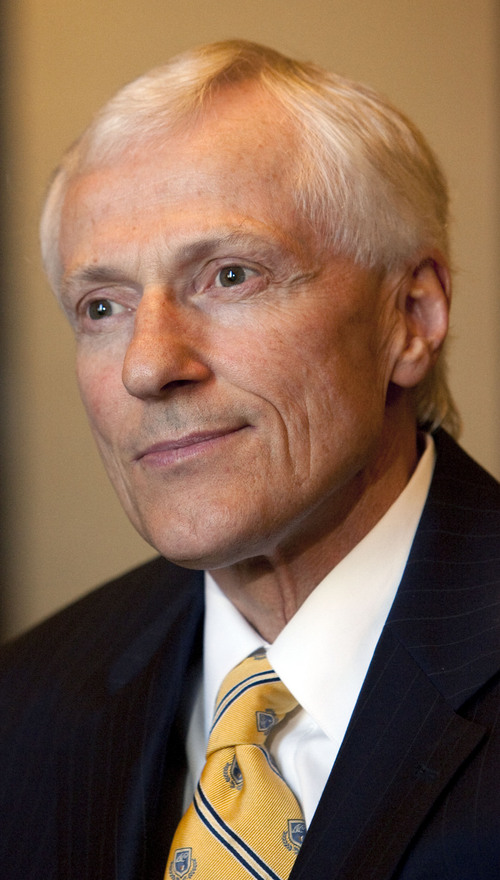This is an archived article that was published on sltrib.com in 2014, and information in the article may be outdated. It is provided only for personal research purposes and may not be reprinted.
USTAR, the state economic development program under scrutiny for inflating job and revenue numbers, faced a tough reception at the Utah Legislature Tuesday.
"I believe over the last few years that there's been a culture of untruth and lies come out of this group," said Sen. Scott Jenkins, R-Plain City. "You've told us good things today. I want to believe these things [but] ... if I was an investor right now, today, I think I'd probably still pull my money out."
The Utah Science Technology and Research (USTAR) initiative was started in 2006 to create jobs, businesses and tax revenue by leveraging university research. The state has invested $334 million of public money to build facilities at the University of Utah and Utah State University, lure top researchers and commercialize technology.
USTAR officials appeared before the Business, Economic Development and Labor Appropriations Subcommittee Tuesday to respond to an October legislative audit that found they touted the creation of thousands of construction jobs that no longer exist and contracts that hadn't paid out yet, among other problems.
While new chair of the USTAR governing authority Greg Bell said the program is fixing the issues uncovered by the audit, he pointed to the $258 million in external funding USTAR-affiliated researchers have brought into the state over the last seven years.
"USTAR is on track, it is well-governed, it is fulling the promises outlined in the original prospective," said Scott Anderson, governing authority member and Zions Bank CEO. The program is searching for a new executive director after Ted McAleer resigned this month.
But legislators questioned whether that funding, most of which comes from federal research grants, is really creating high-paying jobs and expanding the state tax base.
"I have seen this movie before and I know how it ends," said Sen. Stuart Reid, R-Ogden. "The legislature is not going to keep funding this if you cannot demonstrate real progress. It's just not going to happen ... I'm not sure USTAR needs to exist to get grant money."
While technology can be lucrative, it's not an immediate payoff, said Tom Parks, vice president of research at the University of Utah.
"You have to write a lot of licenses ... to generate a lot of licensing income and you have to wait on average 10 years," he said. Over the last 30 years, the U. has had about 13 technologies that have each made more than $1 million, he said.
The U. didn't usually have the funding to recruit senior researchers until the creation of USTAR, which has helped attract faculty who create inventions, file patents and get licenses issued four to eight times more often than the average faculty member, Parks said.
Florian Solzbacher, a professor and CEO of Blackrock Microsystems, said the program is important for both the researchers it brings in and the mindset it signals.
"Having a state that essentially manages to invest the way Utah has and take that 20, 30-year perspective, that is what I would like to see," he said.
But the average salary for a USTAR-created job is now $24,000 a year, though supporters say that will triple as the companies grow and develop over the next 20 years.
Utah State University's Robert Behunin, vice president of advancement and commercialization, said that USTAR is involved with programs for clean coke mining and making artificial spider silk for applications such as artificial ligaments.
"It is very robust and it has made a difference in our community," he said, pointing specifically to a Utah Transit Authority grant for electric buses he said the university could not have gotten without USTAR.
Though the legislators didn't make any decisions about the program's annual funding of about $20 million, few seemed to come away satisfied.
"Over the next week we're going to have a long line of people marching in here asking us for money," Reid said. "Demonstrate to me what the return on investment is for this state ... this is business and economic development, this is not the charity line."
Twitter: @lwhitehurst









